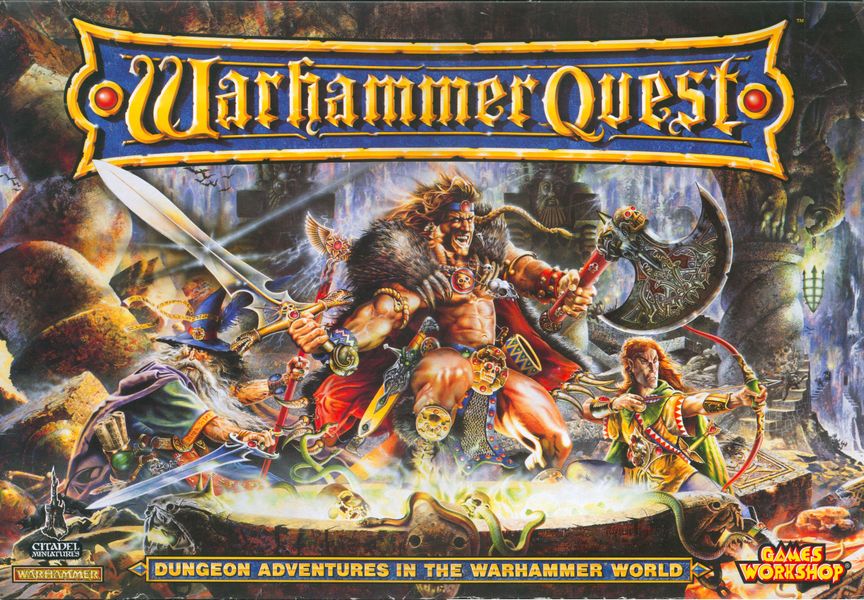Warhammer Quest (1995) Board Game
Warhammer Quest is a fantasy adventure board game that was first released in 1995 by Games Workshop. It quickly gained popularity among gamers for its cooperative gameplay, rich fantasy theme, and challenging quests. The game was designed by John Blanche, Wayne England, David Gallagher, and Mark Gibbons, with artwork by Games Workshop Ltd.
Game Components
Mechanics and Game Category
Warhammer Quest is a cooperative, miniature-based adventure game that emphasizes random dungeon generation and dice rolling. Players take on the roles of four Warriors: the Barbarian, Wizard, Elf, and Dwarf. The game features a high degree of randomness, including rolling dice to determine character wounds, magic power, and combat outcomes. Each turn includes phases for generating magic power, Warrior activation, monster attacks, and exploring the dungeon.
How To Setup
To set up the game, players select a quest, create the random dungeon by drawing cards from the dungeon deck, and place the appropriate miniatures and tiles. The game includes detailed instructions in the rule book and role-playing book for setting up and managing the game.
Gameplay Mechanics and Game Objective
Player Experience
The game offers a fast-paced and often unpredictable experience, with a significant emphasis on luck and dice rolling. While the core game can be quite random and sometimes farcical, the Roleplay Book adds depth by introducing RPG elements such as character development, linked campaigns, and additional events. This expands the game beyond a simple dungeon crawl to a more immersive role-playing experience.
Pros
Cons
Personal Thoughts
Warhammer Quest is ideal for fans of fantasy and dungeon crawls, particularly those who enjoy cooperative games and are comfortable with a high degree of randomness. It is a great option for groups looking for a game that combines simple mechanics with the potential for deep role-playing elements. However, it may not be the best fit for players seeking highly strategic or predictable gameplay experiences.
We are supported by our audience. When you purchase through links on our site, we may earn an affiliate commission, at no extra cost for you. Learn more.

